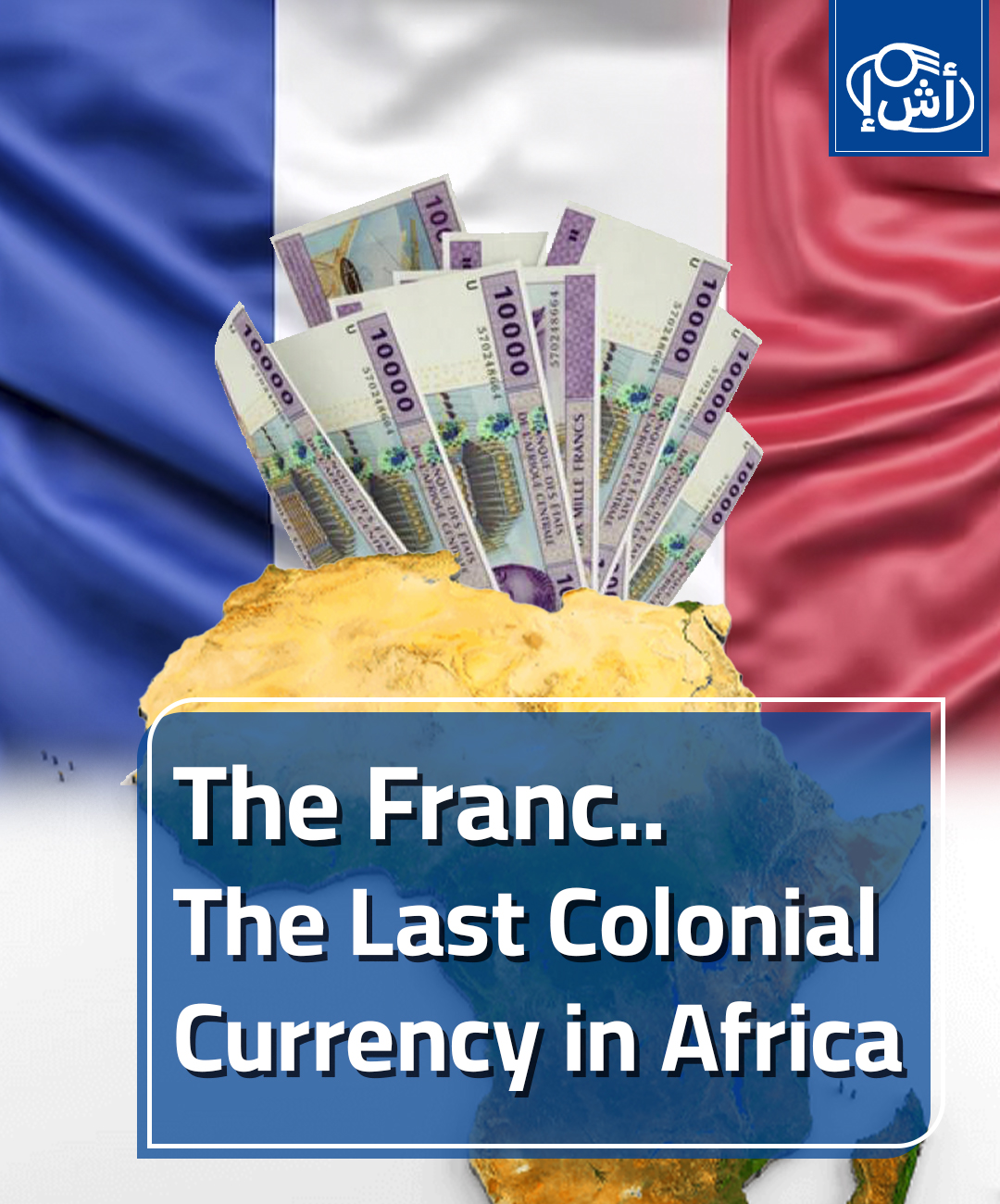The CFA franc is a permanent symbol of France’s neo-colonial influence in Africa.
The French military withdrawal from Niger gave a faint picture of an old colonial relationship; it is still governed by an economic reality controlled by the French franc, and the process of liquidating the interests of foreign companies in most Sahel and Central African countries remains subject to monetary policies set by the “franc zone” since the middle of the last century.

In practice, the establishment of the CFA franc in 1945 was a clear strategy of controlling resources for the countries of this region, and it was used by 14 African countries, namely Benin, Burkina Faso, Guinea-Bissau, Ivory Coast, Mali, Niger, Senegal, Togo, Cameroon, Chad, Equatorial Guinea, Gabon, and the Republic of the Congo, and these countries were divided into two regions: the West African Economic and Monetary Union (WAEMU) and the Central African Economic and Monetary Community (CEMAC), along with the Comorian franc in the Union of the Comoros, and its four basic principles formed a special mechanism. From the fixed price with the French franc (and later the euro), to the free movement of capital and the guarantee of unlimited convertibility by the French and central treasury, to the centralization of accounts in the French treasury, the whole of which constituted a state of preservation of the colonies through the monetary system.

While the measures ostensibly facilitated economic stability and integration, the reality of the perpetuation of African countries’ economic dependence on France, which limits the monetary sovereignty of member states, was evident in the deterioration of their trade balance from a deficit of US$2 billion to US$10 billion over 10 years.
This deterioration reflects the structural economic constraints imposed by neocolonial relations, which limit the ability of these countries to diversify their economies and reduce dependence on the export of raw materials.
On the other hand, dependence on France in the management of foreign reserves increased from 50% to 65% in the same period, and the financial arrangement aimed at stability ostensibly, restricts these countries, which limits their independence with regard to monetary policies and economic strategies, and the following graph represents economic weaknesses as it puts the trade balance in an approach to the increasing proportion of foreign reserves held by France:


The growing waves of resistance against the CFA franc and wider French influence indicate a pivotal shift, as they carry attempts to formulate a new path towards economic independence and self-determination, as the CFA franc remains a subject of disagreement and resistance within member states, as it hinders their economic development, especially the issue of the fixed exchange rate, as it makes their exports more expensive and imports cheaper, thus hindering the industry. Domestic and perpetuating trade imbalances in favor of France.

France has benefited from privileged access to natural resources, preferential trade agreements, and an investment climate within the franc zone, but the recent trend of the adoption of the ecocurrency by the Economic Community of West African States (ECOWAS) illustrates the move towards economic independence from the CFA franc. The franc is in addition to other world powers, such as China and Russia, and the loss of political clout is reflected in the reduction of French military bases and the questioning of security arrangements.

The social and cultural relations between France and its former colonies have been affected by the evolving political and economic scene, and the political tensions in the countries of the franc zone and the division in it and public opinion reflect a complex relationship that balances between common history and the desire to redefine partnership on the basis of equality and mutual respect, and France tried to adapt its strategy to political developments, and presented initiatives to revitalize economic relations and address mutual security concerns, but achieving the effectiveness of initiatives remains in the field of doubt, and France needs to adopt a partnership model that respects the sovereignty of African countries and their economic ambitions, including reconsidering their policies while recognizing the new establishment of franc zone sovereignty.
Written by Mazen Bilal
7 civilians killed in a terrorist attack in western Niger
